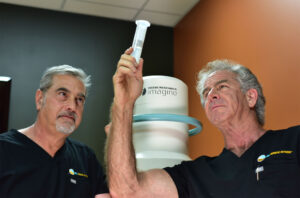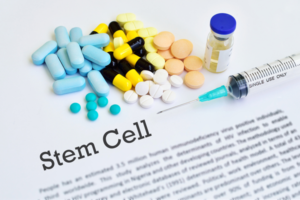Two clinical trials have shown that Mesenchymal stem cells (MSCs) are safe and highly effective in treating age-related frailty. Buoyed by the success of their initial trials, scientists from the University of Miami’s Miller School of Medicine are now moving their research into larger trials. Once these steps have been completed, the stem cell-based technology could be the first anti-aging treatment to get the approval from the FDA.
Fact: everyone gets old. Another fact: many diseases and conditions appear as people grow old. Among the many unwanted signs of aging, perhaps one of the most common (if not the most common) is frailty, an age-related health problem often believed to be an inevitable part of ageing.

On October 12, two clinical trials were published online in The Journals of Gerontology. The reports support a longstanding theory about age-related frailty being caused by stem cell depletion. More importantly, the trials also offered a new way of treatment for sufferers of age-associated frailty. Two teams from the Interdisciplinary Stem Cell Institute (ISCI) of the University of Miami’s Miller School of Medicine, conducted their respective clinical trials to study the safety and effectiveness of ‘Mesenchymal’ stem cells (MSCs) in treating age-related frailty, a condition that encompasses a range of symptoms including fatigue, slower movements, muscle weakness and unintentional weight loss.
Speaking in simple technical terms, stem cells are basically “starting” cells that can morph into any type of cell in the body. There are two types of stem cells: embryonic stem cells and adult stem cells. Among the different subtypes of adult stem cells, it is the ‘Mesenchymal’ stem cells (MSCs), a diverse subset of self-renewal multipotent precursors present in many adult tissues and currently used in the fields of regenerative medicine and tissue engineering, that are drawing intense interest in the world of science. MSCs are used to treat many conditions, including cancer and heart disease.
ISCI researchers conducted two human trials. The Phase 1 trial involved 15 frail patients whose average age was 76 years. These patients were given a single infusion of MSCs which were sourced from bone marrows of younger donors whose ages ranged from 20 to 45 years old. Six months later, strikingly effective results appeared when it came to tackling key factors in aging, as every patient demonstrated improved fitness conditions, gained a better quality of life, and showed improved tumor necrosis levels. On the other hand, Phase 2 was a randomized, double-blind trial with a placebo group in the mix. The results were similar to those of phase 1—adverse effects were absent and improvements were seen in patients.
Frailty is characterized by the age-related decline in a person’s strength, endurance, physical and psychological functions. This condition often leads to hospitalizations, dependency and, worse, death. Few techniques are available to manage age-associated frailty (like exercise, nutritional supplements, and other multidisciplinary techniques) but none so far has gained the formal approval of FDA. As age-related frailty is believed to be a product of stem cell depletion, it appears that a stem cell-based treatment is the most conspicuous way of countering it. Frailty affects around 10 to 11% of the world’s senior population, and MSC will surely bring benefits (also comfort and happiness) to this group.
“With the aging of the population, stem cells hold great promise to treat aging-related disability and frailty, improving physical capacity and quality of life,” said Joshua M. Hare, ISCI Director and one of the researchers involved in both trials.
This is not the first time though that bone marrow-derived human MSCs are studied for their anti-aging effects. Previous studies have shown that these cells act on injury sites, have anti-inflammatory and antifibrotic properties, and also have pro-regenerative powers. As such, MSC treatment not only provides a way for treating frailty but also offers hope for people who suffer from a wide range of inflammatory and degenerative diseases. In other words, MSCs offer a multifactorial approach to addressing several aspects of the disease called aging.
As for the research iteslf, scientists of Miami’s Miller School of Medicine are now moving into phase 2b, this time with 120 patients selected across ten locations. After this, an even larger, randomized trial will be launched as phase 3. This will be the last step before seeking regulatory approval for the treatment’s public use. With the remarkable results efficacy-wise posted by phase 1 and 2 trials, MSCs landmark stem cell treatment is on track to become the first anti-aging remedy to get the nod from the FDA.
Reference: New Atlas






